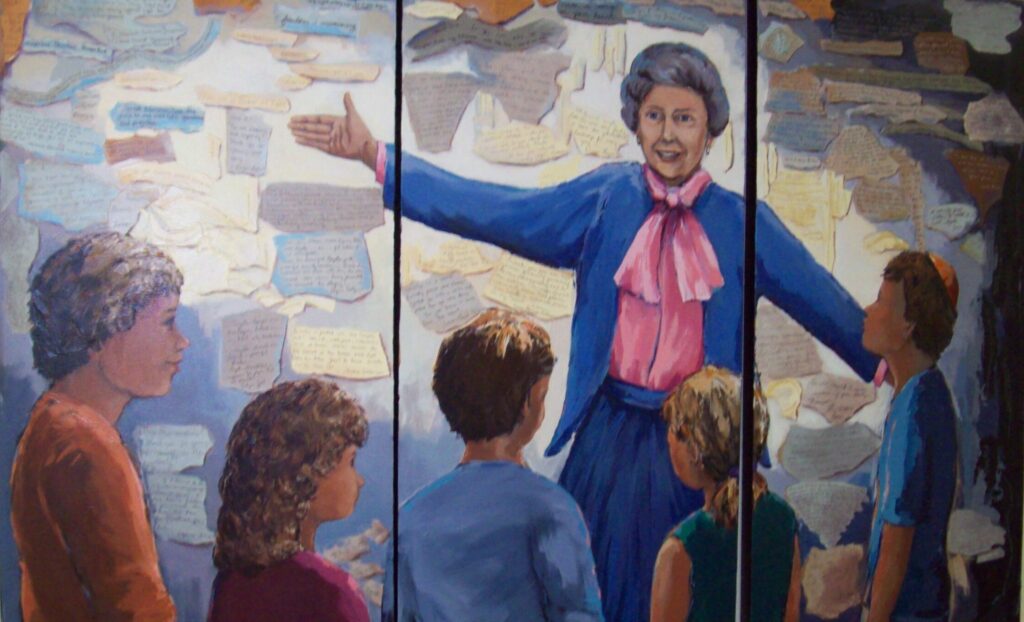Ann Gilbert had no archived testimony. While this may seem like a detriment, Ms. Fishman looked at it as a chance to increase her creativity and research skills. Through quotes from Mrs. Gilbert’s daughter, Lena Gilbert, and Ms. Fishman’s own creative inference, she constructed this poem.
Lena expresses that her “mother had five brothers and sisters…none of whom survived.”Additionally, Mrs. Gilbert endured twelve Nazi concentration camps. However, Lena maintains that her parents “never let their experience in the camps define them.”
Ms. Fishman wanted this poem to depict Mrs. Gilbert as the strong-willed woman her children saw but also show the vulnerability and hidden layer of her personality. She imagined Mrs. Gilbert as a woman who wanted to give her children everything she could, never allowing them to see her struggle. That is most likely one main reason Mrs. Gilbert did not speak on her experiences until later in her children’s lives.
After Mr. and Mrs. Gilbert told their children their stories, they decided they wanted to speak to many people who would listen to their testimonies. Lena elucidates that it took her parents “several years for them to be comfortable with public speaking, but once they committed to becoming public speakers, they spoke out with a lot of devotion and passion.” It is written that the Gilberts “spent decades telling their stories in Cedar Rapids and later in the Los Angeles area.”11
The main takeaway from this poem should be its comparison to the poem written from the viewpoint of the children. The children see this woman who never let her troubles show and “ended up fine,” but Mrs. Gilbert hid greatly from them.
First-hand testimony is much more powerful than third-person narration, as having the survivor recount their own experiences is more intriguing and engaging. This is why the VHA and archived testimony are essential to the continuance of Holocaust education. When someone, not the survivor, recounts a testimony, it almost lessens the story’s impact, for it does not directly affect the individual speaking.
BENEATH
Hiding for so many years
Once real worries
Became irrational fears
Told my children we are free
Dictionary defined, yes
Mentally, I may never be
My husband and I
Staying strong for them
Smile on the face
Yet all a lie
Keeping our voices
In fear of reiteration
They questioned our choices
Then came the day
When it became clear
We needed to say
We were no longer in fear
Our children looked at us
Eyes wide and sparkling
Fred rolled up his sleeve
And began our story.
